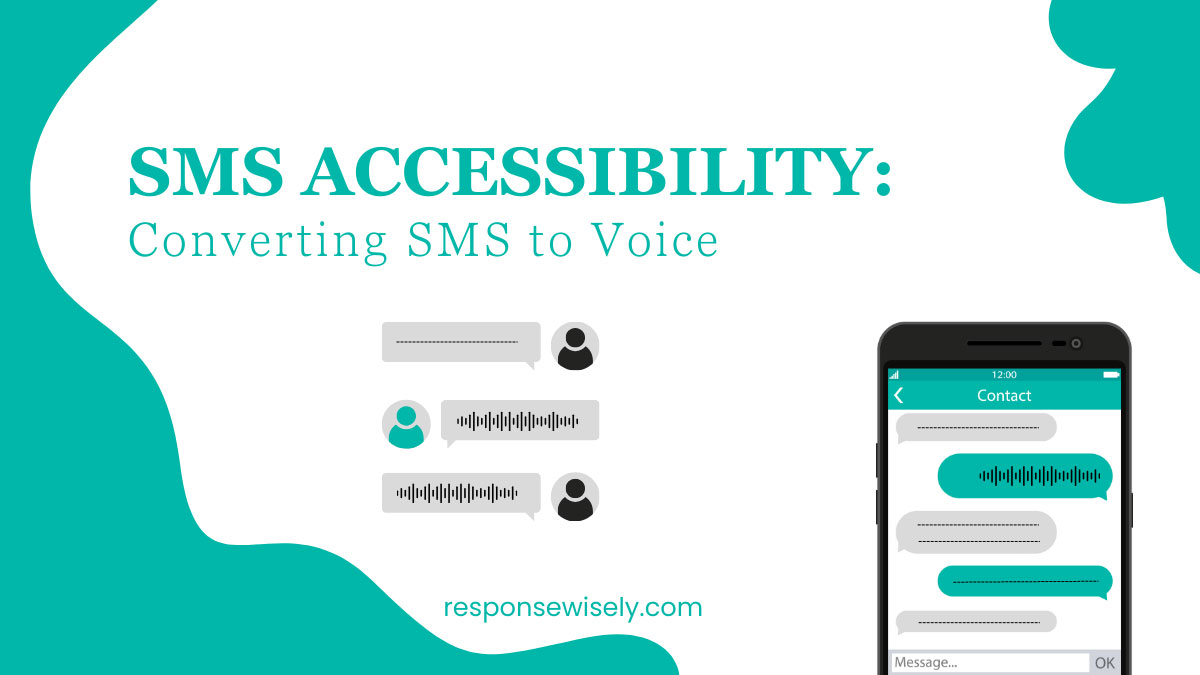As a tech enthusiast, I’ve always been fascinated by how innovation can enhance accessibility for everyone. In modern digital era, the conversion of text to speech has revolutionized the way we interact with technology. One such groundbreaking application is the conversion of SMS messages to speech, bridging the gap for individuals with visual impairments or those who prefer auditory input.
In this text, I’ll investigate into the world of converting SMS to speech, exploring the technology behind it and its profound impact on accessibility. From the underlying algorithms to the user-friendly applications, we’ll uncover how this conversion process is not just a convenience but a necessity in creating a more inclusive digital environment. So, join me on this journey as we unravel the transformative power of turning text into voice for a more accessible future.
Understanding SMS Accessibility
Importance of SMS Accessibility
Enhancing accessibility through SMS to speech is crucial for individuals with visual impairments. Speech technology enables them to receive and interact with information effectively. This feature promotes digital inclusion and empowers users to engage with SMS messages independently.
Challenges Faced by Users
Even though the benefits, users may encounter challenges such as incomplete message conversions or misinterpretations due to language nuances. Speech clarity and pronunciation accuracy are also essential for seamless communication. Efficient user training and continuous improvements in speech technology can address these obstacles.
Converting Text to Speech
Text-to-Speech Technology Explained
Text-to-speech (TTS) technology is a game-changer for individuals with visual impairments. It converts written text into spoken words, enabling seamless access to information. TTS systems use advanced algorithms to analyze and interpret text, ensuring accurate pronunciation of words and phrases. This technology empowers users by providing auditory access to content that was previously inaccessible.
Tools for Converting SMS to Speech
When it comes to converting SMS messages to speech, there are several tools and platforms available to streamline the process. These tools use TTS software to convert text messages into clear and articulate speech. From mobile applications to online services, users have a range of options to choose from based on their preferences and devices. With the advancements in TTS, converting SMS to speech has become more efficient and user-friendly, enhancing accessibility for individuals with visual impairments.
Enhancing User Experience
Customizable Features for Accessibility
Incorporating customizable features into text-to-speech (TTS) systems allows for personalized settings based on individual preferences. This customization enhances the overall user experience by providing options such as adjusting speech speed, selecting different voice styles, and modifying volume levels to meet specific accessibility needs effectively.
Improving Speech Clarity
Improving Speech Clarity is paramount in ensuring that the converted text is easily understandable and coherent. Advanced TTS technologies use sophisticated algorithms to enhance pronunciation accuracy, intonation, and emphasis, resulting in clear and natural-sounding speech output that enhances the listening experience for users with visual impairments.
Future Trends in Accessibility
AI Advancements in SMS Accessibility
Artificial intelligence (AI) is revolutionizing the field of text-to-speech technology. With AI integration, SMS to speech conversions are becoming more seamless and natural. Advanced AI algorithms are enhancing pronunciation accuracy and intonation, resulting in clearer and more understandable speech outputs. By leveraging AI, SMS accessibility tools are evolving to provide users with a more immersive and personalized experience.
Key Takeaways
- SMS to speech conversion enhances accessibility for individuals with visual impairments, enabling them to interact with information independently.
- Challenges faced by users include incomplete message conversions and misinterpretations, highlighting the importance of continuous improvements in speech technology.
- Text-to-speech (TTS) technology uses advanced algorithms to convert written text into spoken words accurately, empowering users by providing auditory access to content.
- Various tools and platforms are available for converting SMS messages to speech, offering users efficient and user-friendly options to enhance accessibility.
- Customizable features in TTS systems improve user experience by allowing personalized settings and enhancing speech clarity for better understanding.
- Artificial intelligence (AI) integration is shaping the future of SMS accessibility, making conversions more seamless and natural with enhanced pronunciation accuracy and intonation.
Conclusion
Enhancing accessibility through SMS to speech technology is crucial for individuals with visual impairments. Customizable features like speech speed and voice styles play a significant role in improving user experience. Advanced algorithms are key in enhancing speech clarity. The integration of artificial intelligence is shaping the future of TTS systems, offering more accurate pronunciation and natural intonation for personalized interactions. As technology continues to advance, the focus remains on creating inclusive solutions that empower users with visual impairments to access information effortlessly.
Frequently Asked Questions
What are customizable features in text-to-speech (TTS) systems?
Customizable features in TTS systems allow users to adjust speech speed, voice styles, and volume levels for a personalized experience, catering to individual preferences and needs.
How do advanced algorithms improve speech clarity in TTS systems?
Advanced algorithms enhance speech clarity in TTS systems by optimizing pronunciation accuracy and intonation, resulting in clearer and more natural-sounding speech outputs for users.
How is artificial intelligence (AI) impacting SMS to speech technology?
AI is revolutionizing SMS to speech technology by advancing pronunciation accuracy and intonation, leading to enhanced user experiences through clearer and more natural speech outputs personalized to individual preferences.

